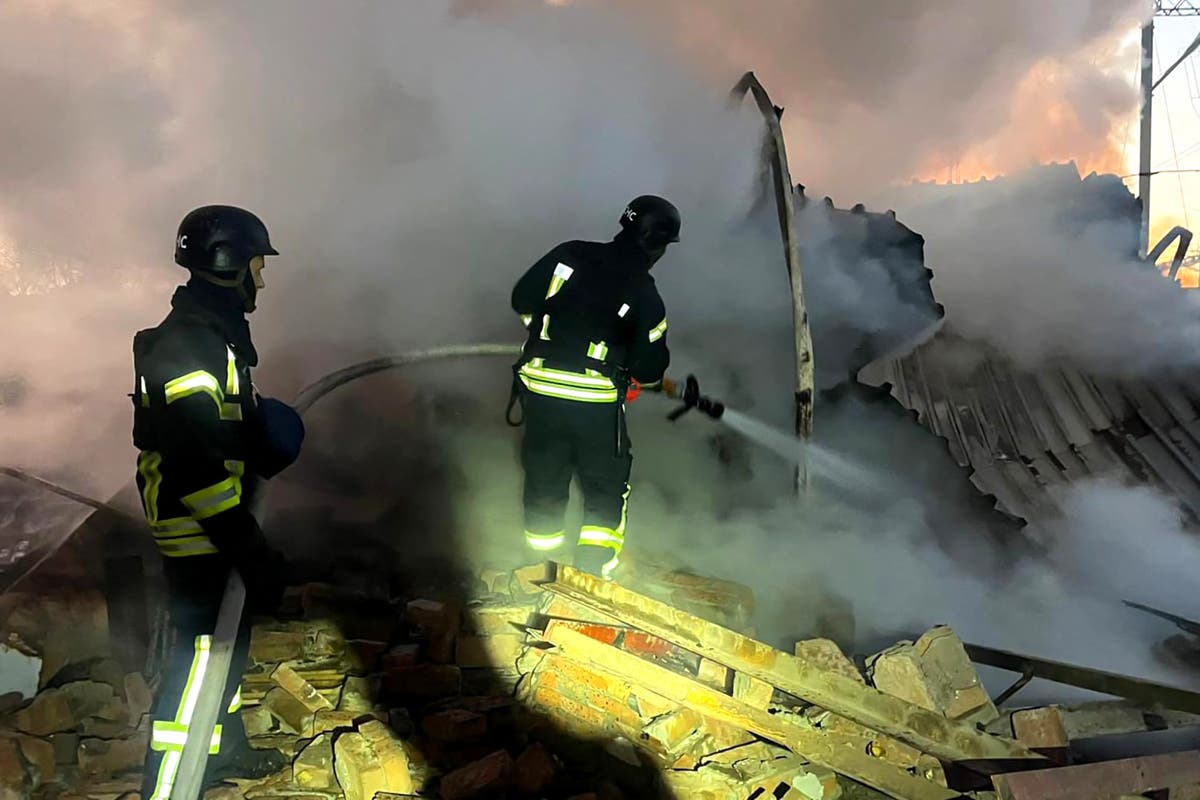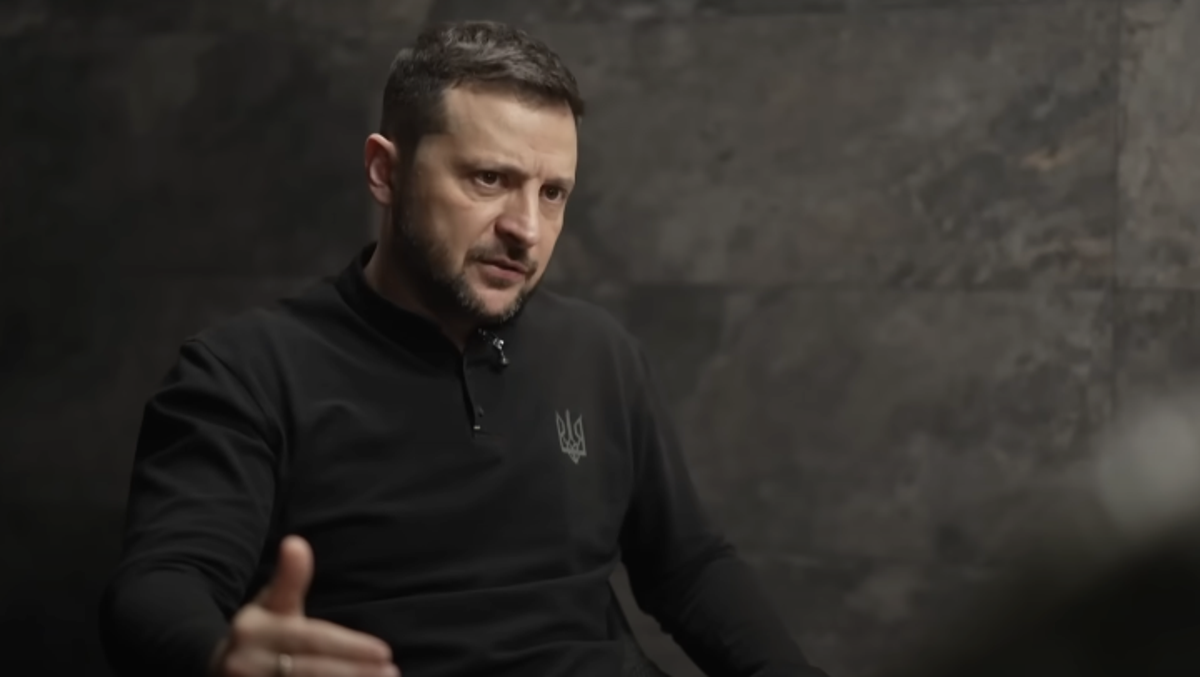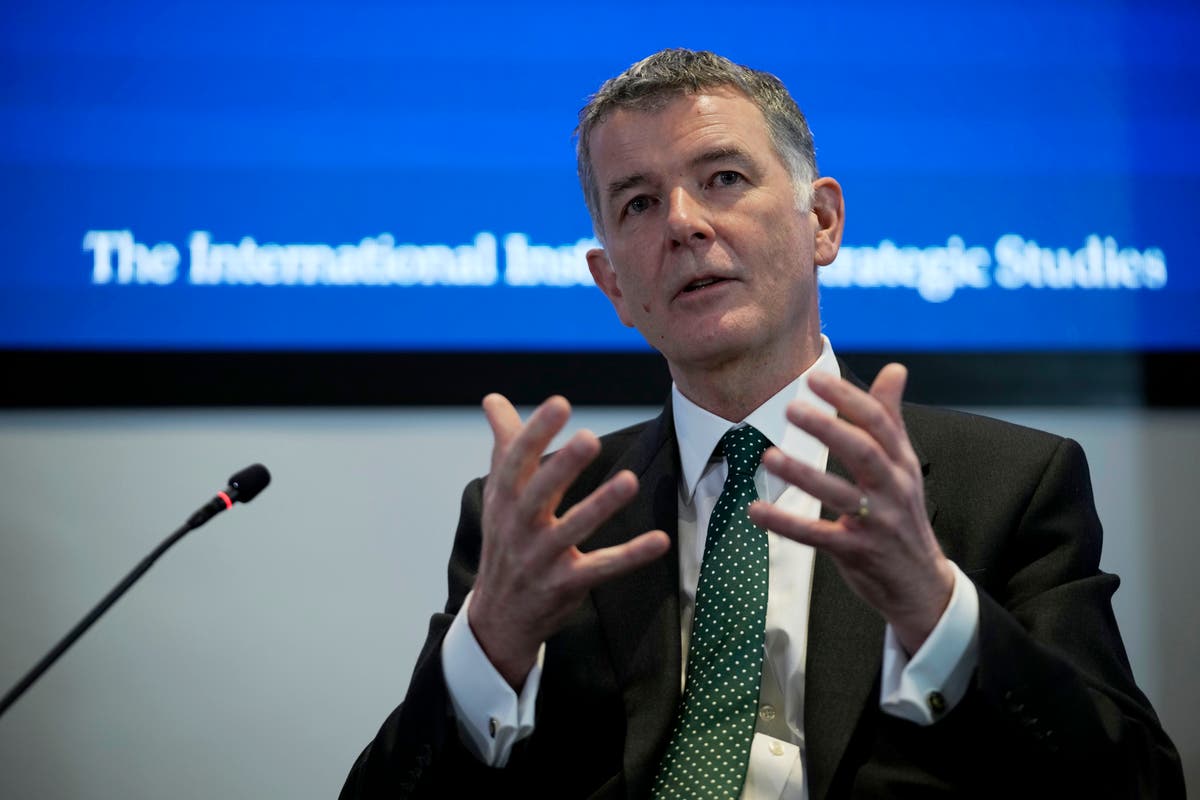Ukraine-Russia war latest: Zelensky appeals to Nato ‘sceptics’ as US rules out giving nuclear weapons to Kyiv
Zelensky says any invitation to join Nato must apply to all of Ukraine’s territory
Your support helps us to tell the story
From reproductive rights to climate change to Big Tech, The Independent is on the ground when the story is developing. Whether it's investigating the financials of Elon Musk's pro-Trump PAC or producing our latest documentary, 'The A Word', which shines a light on the American women fighting for reproductive rights, we know how important it is to parse out the facts from the messaging.
At such a critical moment in US history, we need reporters on the ground. Your donation allows us to keep sending journalists to speak to both sides of the story.
The Independent is trusted by Americans across the entire political spectrum. And unlike many other quality news outlets, we choose not to lock Americans out of our reporting and analysis with paywalls. We believe quality journalism should be available to everyone, paid for by those who can afford it.
Your support makes all the difference.Volodymyr Zelensky has called on the US to convince “sceptics” in Europe that Ukraine should be invited to join Nato.
For the first time the Ukrainian president indicated that Kyiv could accept Russian control over some of its territory in order to end the “hot phase of the war”, and on the condition that Ukraine joins Nato.
Any invitation to join Nato must apply to all of Ukraine’s territory, Mr Zelensky told Sky News, but he accepted its defence “umbrella” could not apply to parts of Ukraine that remain occupied by Vladimir Putin’s forces.
This came as the US said it was not considering returning to Ukraine the nuclear weapons it gave up after the Soviet Union collapsed.
“What we are doing is surging various conventional capacities to Ukraine so that they can effectively defend themselves and take the fight to the Russians, not (giving them) nuclear capability,” White House national security adviser Jake Sullivan said.
Ukraine is now entering a “potentially decisive phase” in Russia’s war which will be crucial for Britain’s future security and prosperity, Sir Adam Thomson, the UK’s former representative to Nato has said.
German foreign minister slams China for providing weapons to Russia
German foreign minister Annalena Baerbock has accused China of providing Russia with weapons for its war against Ukraine and threatening peace in Europe and the Indo-Pacific.
“Instead of taking responsibility for peace and security in the world as a permanent member of the UN security council, China is opposing our core European interests with its economic and weapons aid to Russia,” Ms Baerbock said in a statement ahead of a visit to Beijing.
The German foreign minister will travel to China next week, where she will meet with her Chinese counterpart Wang Yi to discuss issues including the war in Ukraine. “Putin’s brutal war of aggression against Ukraine is a direct threat to our peace,” Ms Baerbock said. “I will also speak in Beijing about the fact that we cannot simply ignore this in our relations with China.”
She noted that the war in Ukraine shows how security in Europe is inextricably linked with that in Asia.
“If North Korea sends soldiers and weapons against Ukraine, while Russia supports Pyongyang’s nuclear programme, then this jeopardises peace both here and in the Indo-Pacific,” Ms Baerbock said.
Why is Russia targeting Ukraine’s energy grid with missile attacks?
Russia has unleashed another “massive” attack against Ukraine‘s energy infrastructure, firing nearly 200 missiles and drones and leaving more than a million households without power, Ukrainian officials said.
Explosions were heard across the country as damage to the energy and other critical infrastructure was reported by officials in cities in the west, south and centre of the country.
Ukrainian President Volodymyr Zelensky said Russia used cruise missiles with cluster munitions in Thursday’s attack, calling it a “vile escalation”.
In this article, The Independent takes a look at why Russia is launching so many strikes and the likely impact of them on Ukraine.
Read our analysis here:

Why is Russia targeting Ukraine’s energy grid with missile attacks?
Moscow unleashes second major strike on power sector in two weeks in what Ukrainian president Zelensky calls ‘vile escalation’
Russia says its forces capture two settlements in Ukraine's east
The Russian defence ministry said its forces had gained control over two settlements, Illinka and Petrivka, in Ukraine’s eastern Donetsk region.
It also said that Russian air defences shot down 55 Ukrainian drones in the past 24 hours.
Russian forces hold a little less than 20 per cent of Ukraine’s territory and have advanced through Donetsk region over the past two months at their fastest rate since March 2022, according to open source data.
They are approaching Kurakhove and the town of Pokrovsk to the north, the site of the sole colliery that supplies Ukraine’s steel industry with coking coal.
Zelensky’s latest plan is a ‘major concession’ to Putin, says former UK ambassador
Volodymyr Zelensky’s suggestion that Ukraine could temporarily cede territory to Russia in exchange for joining Nato would mark a “major concession” to Vladimir Putin, the UK’s former ambassador to Russia has said.
In a significant development on the route to a potential ceasefire after 33 months of conflict, the Ukrainian president indicated for the first time that Kyiv could accept Russian control over some of its territory in order to end the “hot phase of the war”.
With Moscow appearing to ramp up its push for territory in Ukraine’s east ahead of Donald Trump’s return to the White House in January, Mr Zelensky told Sky News that peace could be struck if territory he controls is taken “under the Nato umbrella”, allowing him to negotiate the return of the rest later “in a diplomatic way”.

Zelensky’s Ukraine-Russia plan ‘would be major concession’ to Putin
Ukrainian president ‘playing a very sophisticated game’ with remarks on Nato, says Sir Tony Brenton
US will not return nuclear weapons to Ukraine, says White House
The US is not considering returning to Ukraine the nuclear weapons it gave up after the Soviet Union collapsed, White House national security adviser Jake Sullivan said yesterday.
Mr Sullivan made his remarks when questioned about a New York Times article last month that said some unidentified Western officials had suggested president Joe Biden could give Ukraine the arms before he leaves office.
“That is not under consideration, no. What we are doing is surging various conventional capacities to Ukraine so that they can effectively defend themselves and take the fight to the Russians, not (giving them) nuclear capability,” he told ABC.
Last week, Russia said the idea was “absolute insanity” and that preventing such a scenario was one of the reasons why Moscow sent troops into Ukraine.
Kyiv inherited nuclear weapons from the Soviet Union after its 1991 collapse but gave them up under a 1994 agreement, the Budapest Memorandum, in return for security assurances from Russia, the United States and Britain.
MI6 chief warns Russia must not succeed in turning Ukraine into ‘vassal state'
The head of MI6 has accused Russia of waging a “staggeringly reckless campaign” of sabotage in Europe to undermine support against Vladimir Putin’s push to turn Ukraine into a “vassel state”.
“In 37 years in the intelligence profession I’ve never seen the world in a more dangerous state. And the impact on Europe, our shared European home, could hardly be more serious,” Sir Richard Moore said, adding that if “Putin is allowed to succeed in reducing Ukraine to a vassal state he will not stop there.”
Read more details in this report:

World at most dangerous point in 40 years, MI6 chief warns
If Vladimir Putin allowed to reduce Ukraine to vassal state he will not stop there, Richard Moore says
Russian drone attack kills one in Ternopil, says Ukraine
Russia’s drone attack on Ukraine’s western city of Ternopil hit a residential building, killing one person and injuring several others, Ternopil’s military administration said this morning.
“A residential building was damaged,” Viacheslav Negoda, the head of the military administration of Ternopil region, said. “Unfortunately, there are casualties: one person has died, there are seriously wounded.”
Serhiy Nadal, the head of the regional defence headquarters in Ternopil, said via Telegram that as result of the attack, a fire engulfed several flats on the top floor of a five-storey apartment building.
He said that residents from several apartments were evacuated and that emergency services were working at the scene. Social media videos showed flames bursting out of the windows of a multi-storey apartment building in the darkness.
The city of Ternopil and its surrounding region were under air raid alerts for a couple of hours starting soon after midnight today, according to data provided by Ukraine’s air force.
Britain needs a more integrated defence industry, minister warns
British defence secretary John Healey has warned that the UK’s defence industry needs to be more integrated in order to strengthen the country’s security and economy.
Unveiling plans for the first British defence industrial strategy since Russia’s invasion of Ukraine, Mr Healey said: “Our defence sector should be an engine for jobs and growth, strengthening our security and economy.
“That requires a defence industry that is better and more integrated – one that can keep our armed forces equipped, innovating at a wartime pace, and ahead of our adversaries.
“We will develop this new defence industrial strategy with industry, with innovators and with workers. We will mobilise the private sector to help face down global threats, direct more public investment to British businesses and create jobs and growth in every nation and region of the UK.
“National security is the foundation for national stability and growth. We are sending a signal to the market and to our adversaries: with a strong UK defence sector we will make Britain secure at home and strong abroad.”
UK to unveil first military industrial strategy since Russia’s invasion of Ukraine
British defence firms will be prioritised for UK government money under a new strategy due to be announced on Monday.
Defence secretary John Healey will launch the defence industrial strategy and pledge to increase jobs in the sector across the UK, with investors and unions among those set to be invited to offer views on the sector.
Officials are also exploring how to make the defence supply chain more resilient, with the industry due to take part in a “war game” exercise which will test how firms and the Ministry of Defence could maintain supplies to the front line if they were faced with fighting and supply chain disruption.
This will be the first defence industrial strategy since Russia invaded Ukraine, with the last version published in 2021, and it is expected to be published in the first half of 2025, with consultation open until the end of February.
Ukraine ‘entering potentially decisive phase’ in Russia’s war, says ex-Nato ambassador
Ukraine is entering a “potentially decisive phase” in Russia’s war which will be crucial for Britain’s future security and prosperity, the UK’s former representative to Nato has said.
Speaking to Sky News in the wake of Volodymyr Zelensky’s interview discussing how to end the “hot phase” of the war, Sir Adam Thomson said: “This is a very significant statement by President Zelensky.
“With a new US administration coming in, we’re entering a potentially decisive phase in the Ukraine war that’s going to be crucial for the UK’s security and prosperity for years to come.
“Zelensky is addressing his own domestic audience, and is preparing them for compromises, but above all in this interview he is making opening moves in what’s likely to be an extended negotiation with the incoming Trump administration about what line Washington is going to take with the Kremlin.
“He’s moving Ukraine to a much more realistic position. Still not necessarily an achievable one, but more realistic.
“About three quarters of Nato allies, I would say, privately think that if it could be done Nato membership would be the least bad outcome in the sense of being the least expensive and the most stable outcome. But it couldn’t be done without the US president being wholly behind it and persuading two thirds of the US senate and quite a number of doubting allies.”




Join our commenting forum
Join thought-provoking conversations, follow other Independent readers and see their replies
Comments